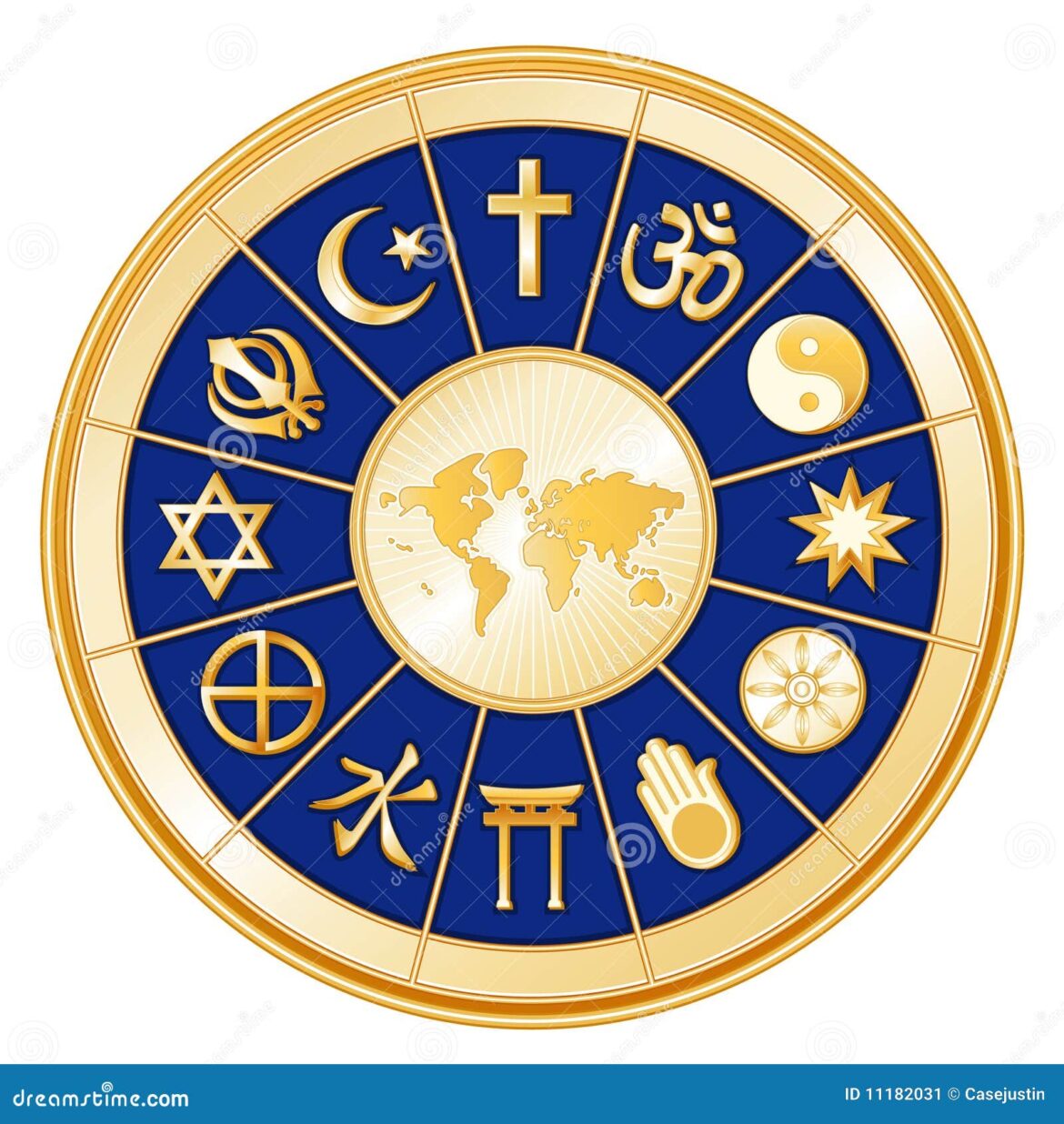Religion is the tapestry of human experience, an intricate weave colored by myriad beliefs and cultural expressions that span the globe. The world, teeming with a diverse array of faith traditions, provides a fertile ground for exploration and understanding. In this vast landscape, Christianity stands as one of the most significant threads, influencing not only the spiritual lives of millions but also shaping the ethos of many societies. However, to comprehend Christianity’s role fully, it is imperative to examine the broader panorama of world religions.
As we embark on this journey, we are confronted with a myriad of religious systems, each with its own unique narrative and intrinsic appeal. The principal religions—Hinduism, Buddhism, Islam, Judaism, and other indigenous beliefs—offer profound insights into the human condition. They serve as mirrors reflecting the timeless questions that echo throughout our existence: Who are we? What is our purpose? What lies beyond this life?
Beginning with Hinduism, often regarded as one of the oldest religions, we find a spiritual mosaic rich in diversity. Its polytheistic framework, marked by an array of deities, resonates deeply with its adherents. The concepts of dharma (duty) and karma (the law of cause and effect) synthesize to guide personal and ethical conduct, while the ultimate aim of moksha (liberation from the cycle of rebirth) beckons as a tantalizing promise of eternal bliss. Its sacred texts, the Vedas and Upanishads, are profound philosophical discourses that invite contemplation and introspection.
Transitioning eastward, Buddhism emerges as a philosophical journey rather than a mere religious obligation. Founded by Siddhartha Gautama, known as the Buddha, its core tenets of the Four Noble Truths and the Eightfold Path offer a pragmatic approach to alleviating suffering. Buddhism’s emphasis on mindfulness and compassion strikes a chord within contemporary society’s quest for mental peace. The metaphor of the lotus flower—blossoming from murky waters—serves as a powerful symbol of enlightenment, illustrating the potential for personal transformation amid the challenges of existence.
Islam, the fastest-growing religion, provides an unyielding framework of monotheism centered around the belief in one God (Allah) and the teachings of the Prophet Muhammad. The Five Pillars of Islam—faith, prayer, almsgiving, fasting, and pilgrimage—form a foundation that nurtures a sense of community and accountability among its followers. The poignant metaphor of the journey in the Quran, likening life to a path of trials leading to divine guidance, encapsulates the essence of faith as a navigational tool through the vicissitudes of life. The Islamic principle of submission, or Islam itself, resonates with a deep-seated yearning for harmony and tranquility.
In contrast, Judaism stands as a testament to resilience and covenant—a faith steeped in history and tradition. The Torah, as the foundational text, is not merely a book of laws but a living dialogue between the Divine and humanity. The rich tapestry of Jewish customs and rituals, such as Shabbat and Passover, fosters a palpable connection to heritage and community. The metaphor of exile and return pervades Jewish thought, serving as a poignant reminder of the eternal quest for spiritual homecoming and restoration.
Beyond these major faith traditions lie indigenous beliefs and new religious movements, which offer alternative perspectives on spirituality and communal life. Many indigenous religions are intrinsically connected to nature, viewing the earth as sacred and imbued with spiritual significance. The reverence for ancestors and the understanding of the cycles of life foster a unique kinship with the environment. These traditions, while often sidelined in broader discourses, remind us of the intricate relationship between faith and the natural world.
Each religion presents not only distinct beliefs but also unique appeals that satisfy the complex needs of humanity. Where Christianity emphasizes grace and redemption through Christ, Hinduism offers the promise of rebirth and ultimate liberation. Buddhism invites adherents to transcend material suffering through mindfulness, while Islam facilitates a profound sense of community through shared practices. Judaism imparts resilience and identity through its enduring connection to the covenant.
In this kaleidoscope of faith expressions, one may argue that each religion contributes to the universal quest for meaning, purpose, and belonging. The allegory of a grand symphony is fitting here—each faith tradition embodies a different instrument, contributing its unique sound to the collective harmony. The challenge lies in listening deeply to this complexity, embracing the diversity, and recognizing the underlying threads that bind humanity together.
As the global village continues to evolve, the interreligious dialogue becomes imperative. More than ever, there is a need for mutual understanding and respect among the world’s religions. The Christian perspective, which emphasizes love, compassion, and the inherent dignity of every individual, can serve as a guiding star in fostering goodwill. This approach advocates for coexistence and collaboration rather than contention, urging believers to see beyond dogma and appreciate the shared values that unite various faith traditions.
In conclusion, the vast array of world religions is not merely a testament to humanity’s diverse beliefs but also an invitation to explore the depth of consciousness and spirituality. Each tradition, with its unique allure, has the potential to illuminate the cornerstones of existence, enrich our understanding of morality, and inspire a greater sense of community. As we navigate this complex landscape of faith, we must strive to foster bridges of understanding, acknowledging the beauty of differences while cherishing the shared human experience.



